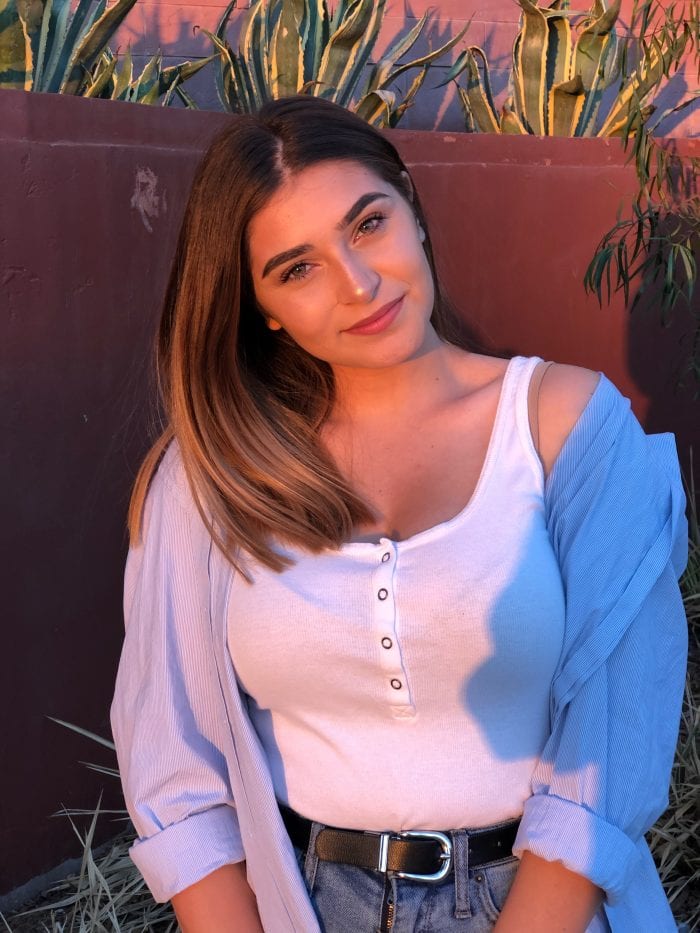Public Safety Administration Student Sees Law Career on the Horizon
 The term “juvenile justice” invariably conjures up visions of kids who have run afoul of the law. Thankfully, Meline Safaryan’s experience placed her on the right side of the bench.
The term “juvenile justice” invariably conjures up visions of kids who have run afoul of the law. Thankfully, Meline Safaryan’s experience placed her on the right side of the bench.
“Throughout my high school years, I was involved in the school’s teen mock court program,” she recalls. “The program gave juvenile offenders a choice to not be tried in court but instead to go through an adjudication process that helped students learn about the criminal justice system.” In addition to the accused, the teen court consisted of a bailiff, 12 jurors and a plaintiff. The bailiff would recap the key elements of the case, at which point jurors had a chance to ask the juvenile offender questions. Jurors would later deliberate on an appropriate remedy — community service, apology letter, etc.
For Meline, that exposure to the mocks system stuck. During a field trip to Woodbury as a high school senior–during which she learned about the university’s new Public Safety Administration program (PSA)–she had a clarifying moment. “I was inspired to major in PSA after that visit,” she says. Through the teen court program and popular culture generally, she had long been interested in the field, but she hadn’t yet seen a distinct path to a career. Suddenly, “it all felt very clear that it was exactly what I wanted to do.”
Her sights are now set on a career in law. “I’m not sure about whether to pursue defense or prosecution, public sector or private practice, but the PSA program has already shown me both the strengths of our criminal justice system and its limitations,” she says. She prides herself on her organizational skills and calls her notes “my holy grail.”
The university’s small class sizes initially attracted her to Woodbury. “I knew that I couldn’t handle being in classes with over a hundred students,” Meline says. “I liked how I got one-on-one time with my professors and how they truly care.” She’s now considering a minor in psychology: “Mental health is such a huge part of the criminal justice system — it seems important, if not mandatory, that everyone involved in the system has knowledge in that area.”
She is also delighted to be a part of the PSA program’s inaugural cohort. “It’s amazing knowing that we get to go through the whole program together,” she says. “We’ve gotten very close as a class. It’s an honor to be a pioneer, and I’m just happy to be involved in any way that I can.”